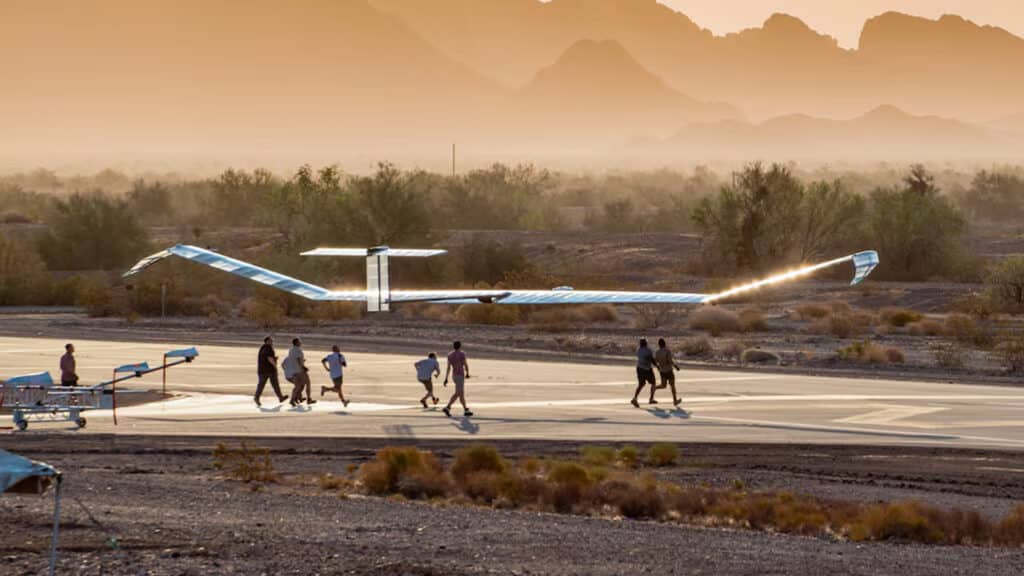Kazakhstan shows interest in French Zephyr pseudo-satellites from Airbus

Airbus, a European aerospace corporation, has proposed to test the Zephyr high-altitude platform stations (HAPS) in Kazakhstan. This suggestion came after a meeting between Zhaslan Madiyev, the minister of digital development, innovations and aerospace industry and representatives of French companies.
Kazakhstan plans to use Airbus solutions designed for monitoring natural resources, environmental management and digitalization of the aviation industry. The Zephyr HAPS is also referred to as a pseudo-satellite, a vessel that resembles a small airplane or stratosphere balloon capable of flying for months at a height of up to 25 kilometers. Technically, this is something between a satellite and an airplane.
The Zephyr project was initially developed by the British defense company Qinetiq in the early 2000s but was later acquired by Airbus. These HAPS are powered by solar batteries recharging during the flight and can cover up to 7,500 square kilometers of the Earth’s surface with a signal. The weight of the aircraft is around 75 kilograms.
In 2022, the Zephyr HAPS crashed in Arizona, which prevented it from breaking the record for the longest continuous flight in history; it fell just a few hours short. However, the pseudo-satellite still spent 64 days in the stratosphere, surpassing its previous record of 26 days.
However, Airbus wasn’t the only company on the agenda, since Kazakhstan’s delegation had several other important meetings, including one with Clever Cloud, an IT company exploring opportunities to expand its business in Kazakhstan as well as establishing a joint venture to reinforce the country’s technology industry.
Together with Synchrotron Soleil, a company operating a particle accelerator, Kazakhstan plans to cooperate in the spheres of artificial intelligence (AI) and big data. The parties discussed joint research projects, though their names have never been disclosed.
Furthermore, Kazakhstan aims to enhance its national cybersecurity by utilizing software from Thales, a French IT company. The country also plans to collaborate with French agencies to facilitate data exchange within the GovTech sector. Additionally, Kazakhstan proposed hosting the next AI Summit in Astana, following the upcoming summit scheduled to take place in France in February 2025. During a meeting with One Web, Kazakhstan’s delegation discussed the potential expansion of the usage of the company’s satellite solutions on more preferential terms.

